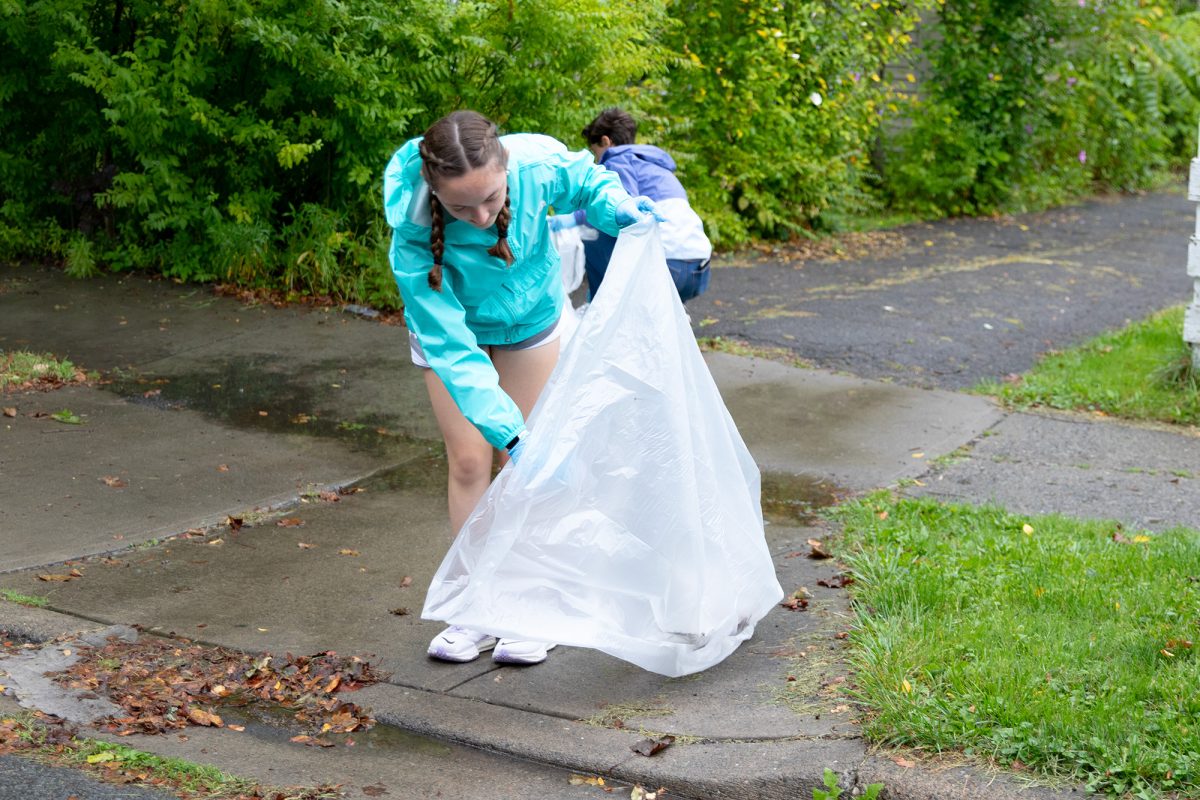After being grounded since last Thursday, planes and weary travelers across Europe are finally seeing movement on the runway.
An ash cloud left by the eruption of Eyjafjallajökull, a volcanic glacier near the Atlantic coastline of Iceland, wreaked havoc for travelers hoping to fly to or from the continent since last Thursday and continues to cause problems as airlines struggle to accommodate travelers, following a series of delays worse than those experienced by travelers following the Sept. 11 attacks.
The volcanic glacier has been dormant for more than 200 years before it erupted briefly this March and, on a larger scale, beginning last Wednesday. Though 800 people surrounding the glacier were evacuated last week for fear the magma would melt the ice and cause flash flooding, the majority of problems caused by the eruption are a result of the ash blown miles into the air.
Once it was ejected high into the atmosphere, the ash was carried to northern Europe by prevailing winds and continues to hover there, held by a high-pressure system that shows no signs of changing, according to a statement made by Sarah Holland of Britain’s Meteorological office to The Associated Press on Tuesday.
Even though flights have since been rescheduled, students studying at the Ithaca College London Center who experienced travel delays last weekend fear the disaster could still affect their future travel plans.
Last week, junior Laura Bugbee made reservations at a Denmark hostel in advance in order to visit family and friends, but after the volcano erupted, Bugbee, who is studying at the London Center, was forced to put her plans on hold. Now Bugbee is waiting to see if the flight to Spain she booked for tomorrow will also be delayed. Many other students studying abroad, their families and even President Tom Rochon are being forced to alter their plans as well.
“It’s hard to know I’ll miss out on seeing these places,” Bugbee said. “I came to London to study because I wanted the chance to travel. It’s also annoying to lose money on hostels and busses to and from the airport that were booked ahead of time.”
Scientists report that seismic activity beneath the volcano continues to increase but that the cloud finally appeared to be dissipating yesterday, a good sign for those stranded in airports across Europe or students like Bugbee who were hoping to have the opportunity to explore the region before their semester abroad comes to a close.
Rachel Cullenen, director of the Ithaca College Office of International Programs, said if the cloud continues to delay flights in the region, the school would be forced to reschedule the flights of hundreds of students who are currently abroad. However, Cullenen said she doesn’t expect the situation to affect their return in May.
“At this stage, nobody has made any plans to make significant changes to [their travel plans],” Cullenen said. “People are standing by, willing to help if and when it’s needed to the extent that we’re able to, but if a student is trying to fly somewhere and no flights are taking off, then they’re kind of going to have to bide their time.”
As far as the cost of delays and flight cancellations, Cullenen said the college’s insurance plan only covers students’ health.
While students are welcome to take out additional travel insurance, she said most programs don’t cover issues involving natural disasters. Administrators would have to decide whether the school would cover these costs for students, she said.
Junior Lauren Strassman, another student at the London Center, is also experiencing ruined travel plans and indefinitely delayed flights. In hopes of traveling while the weather was nice, Strassman said, she scheduled many weekend trips for the end of the semester. With her plans for this coming weekend in jeopardy, Strassman said it’s unfortunate the situation might get in the way of her plans.
While Strassman said she was lucky enough to book her flights on airlines that are offering refunds, Rochon, who was visiting the London Center at the time of the volcano, said he will not be compensated by the airline.
“The airline sees the volcano as an act of God for which they are not responsible,” Rochon said in an e-mail. “We are just maintaining ourselves here, washing out clothes as needed … and, of course, having the London Center very close to our hotel means there is a home base from which we can work.”
Rochon was originally scheduled to fly out of London on Monday, but his flight has tentatively been rescheduled for Saturday. Though he has missed several meetings and a speaking engagement, Rochon said he is happy to have the chance to spend more time exploring the London Center and meeting faculty.
“We have an extraordinary program in London, and I have the opportunity to see that in greater depth than I would have done with the quicker visit as originally planned,” he said.
With the increase in seismic activity, some scientists are concerned that the eruption of Eyjafjallajökull will trigger the eruption of the Katla volcano nearby, but the major question at hand is whether those who have been waiting or those with scheduled flights will receive priority once airways are cleared.
If those passengers whose flights have been cancelled are given priority, flights scheduled for this weekend could be delayed regardless of flying conditions, the AP reported Tuesday.
Cullenen said the situation is inconveniencing students, but no one can be blamed.
“It’s not our fault, it’s not the students fault, it’s not anybody’s fault,” she said. “It’s a situation that needs to be dealt with.”







